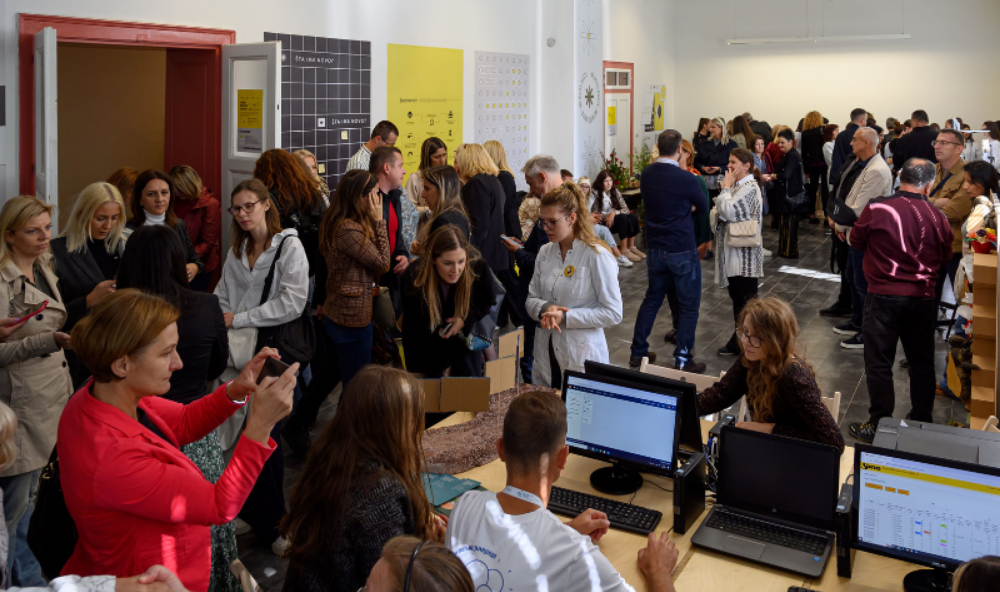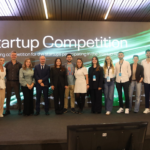The Agricultural and Chemical School “Dr. Đorđe Radic” in Kraljevo, Serbia, has become the first agricultural school in the country to receive a state-of-the-art Makers Lab. This groundbreaking initiative is set to modernize education in the agricultural sector, providing students with the knowledge and skills necessary to succeed in an increasingly digital and technology-driven world.
Supported by the Group for Education and Key Partners from the Economy, the Makers Lab aims to transform how young people learn and prepare for jobs in modern agriculture. This milestone marks a significant step forward in the education of young agricultural experts, with similar Makers Labs being launched in other agricultural schools across Serbia, including those in Bač, Žitorađa, Svilajnac, and Vršac.
Revolutionizing Agricultural Education
The introduction of Makers Labs into agricultural schools represents a pivotal advancement in the way students acquire practical skills. These labs provide a hands-on learning environment focused on smart agriculture, sustainable practices, and the integration of digital technologies. With access to modern equipment, students are better prepared to contribute to one of the most vital sectors of Serbia’s economy: agriculture.
The Makers Lab program is part of a broader initiative that will benefit five agricultural schools, three technical secondary schools, and three gymnasiums. These institutions will receive Makers’ gardens, equipped with cutting-edge technology to teach advanced food production and sustainable agricultural practices.

Modern Technology for a Sustainable Future
At the Agricultural and Chemical School “Dr. Đorđe Radic” in Kraljevo, students now have access to a wide range of modern tools. These include a 3D printer, a mixer for creating cosmetic products, a backpack for soil analysis, action cameras, and a specialized table for flowering and vegetable gardening production. With these resources, students can bridge the gap between theoretical knowledge and practical application.
The school’s principal, Svetlana Mladenović, emphasized the importance of connecting agriculture with modern technology. She stated, “Since the establishment of the school under the leadership of Dr. Đorđe Radic, the first doctor of agricultural sciences in Serbia, we have experienced three industrial revolutions. Today, we stand at the threshold of the fourth industrial revolution. The smart garden project and the advanced technology we’ve received will help us develop the new educational profile of the agricultural technician of digital technologies, blending outdoor production with data processing at Makers Lab.”
Student Innovation on Display
During the Makers Lab’s opening event, students showcased their projects developed through UNICEF’s Upshift workshops. These included projects focused on environmental protection, as well as student creations in cosmetics, floral arrangements, and bakery products. The agricultural students also demonstrated how smart agriculture can be incorporated into everyday teaching, exemplifying the potential to turn theoretical learning into practical, real-world applications.
The Future of Smart Agriculture
The opening of the Makers Lab in Kraljevo is just the beginning of a larger effort to revolutionize Serbia’s agricultural education system. This initiative paves the way for future leaders in agriculture and technological innovation, equipping them with the tools needed to shape a more sustainable future.
Smart agriculture is crucial for the future of food production. With advanced technologies such as IoT sensors, drones, and artificial intelligence, farmers can optimize their processes, reduce water and fertilizer usage, and adapt more effectively to climate change. Investing in this type of education ensures that young people are equipped with the knowledge and skills needed for modern agriculture, contributing to a more sustainable global food supply.
The Makers Lab project not only represents a step forward for agricultural education in Serbia but also underscores the importance of merging agriculture with digital innovation. This initiative promises to prepare the next generation of experts capable of addressing the challenges of sustainable food production in a rapidly changing world.







